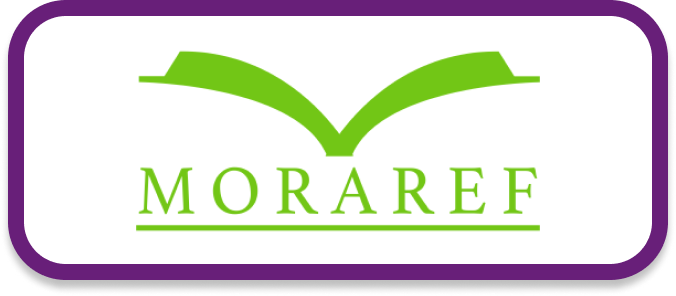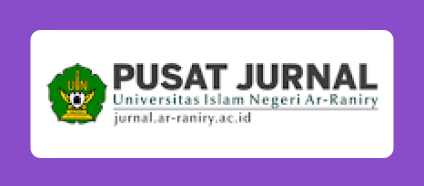THE EFFECT OF STEM LEARNING MODEL (SCIENCE, TECHNOLOGY, ENGINEERING, AND MATH) ON THE CRITICAL THINKING SKILLS OF SCIENCE AND TECHNOLOGY STUDENTS IN CLASS IV SDN CIPONDOH 4 TANGERANG CITY
Abstract
The purpose of the study was the effect of STEM learning model on critical thinking skills of fourth grade students of SDN Cipondoh 4 Tangerang City. This research was conducted at SDN Cipondoh 4 Tangerang City, 2023/2024 school year consisting of two classes, namely class IV A totaling 24 people as the experimental class and class IV B totaling 24 people as the control class with a total of 48 students. This study uses an experimental method with a form of Quasi Experimental design type Nonequivalent Control Group Design with data collection techniques used, namely interviews, observations, documentation and tests. Data analysis techniques in this study include descriptive analysis of data, analysis requirements test (normality and homogeneity test), hypothesis testing to determine the effect of science critical thinking skills of fourth grade students using the STEM learning model. The results of the pre-test and post-test showed that the average value of control class students was 71.16, and the average of experimental class students was 93.25, so the increase was 22.09. The experimental class post-test results showed a t-value of 3.233, a t-table value of 1.677 with a significance level value of 0.002> 0.05. These results indicate that there is an influence on students' critical thinking skills between students who use the STEM (Science, Technology, Engineering, Mathematics) learning model and students who use conventional learning models. This study concludes that there is an effect of using the STEM learning model on the critical thinking skills of science fourth grade students of SDN Cipondoh 4 Tangerang City.
Keywords: Critical thinking skills, Science learning, STEM
Keywords
Full Text:
PDFReferences
Fauzi, M., & Anugraheni, I. (2020). Meta Analisis Model Pbl Terhadap Kemampuan Berpikir Kritis Siswa Di Sd. Pionir, 9(2), 14–26.
Halpern, D. F., & Dunn, D. S. (2023). Thought And Knowledge An Introduction to Critical Thinking (Sixth Edit). Routledge. https://doi.org/https://doi.org/10.4324/9781003025412
Hartini, A. (2017). Pengembangan Perangkat Pembelajaran Model Project Based Learning Untuk Meningkatkan Kemampuan Berpikir Kritis Siswa Sekolah Dasar Ayu Hartini S2-Pendidikan Dasar Program Pascasarjana Universitas Negeri Surabaya Email : ayuhartini.new@gmail.com Pendahuluan. Jurnal Pendidikan Dan Pembelajaran Sekolah Dasar, 1, 6–16.
Lubis, S. S. W. (2019). Keterampilan Menulis Essai Dalam Pembentukan Berpikir Kritis Mahasiswa Prodi PGMI UIN Ar-Raniry Banda Aceh. PIONIR: Jurnal Pendidikan, 8(2),
–17. https://jurnal.ar-raniry.ac.id/index.php/Pionir/index
Meilana, S. F., Aulia, N., Zulherman, & Aji, G. B. (2021). Pengaruh Model Pembelajaran Think Pair Share (TPS) Terhadap Kemampuan Berpikir Kritis di Sekolah Dasar. Jurnal Basicedu, 5(1), 218–226.
Novita Chandra, S., Enawar, E., Sari Ramdhani, I., & Sumiyani, S. (2021). Analisis Keterampilan Menulis Karangan Deskripsi Pada Siswa Kelas Iv Di Sd Negeri Pasirgadung 1 Kabupaten Tangerang. Berajah Journal, 2(1), 25–31. https://doi.org/10.47353/bj.v2i1.45
Sani, R. A. (2019). pembelajaran berbasis Hots (1st ed.). Tira Smart.
Saputri, M. A. (2020). Penerapan Model Pembelajaran Problem Based Learning Untuk Meningkatkan Kemampuan Berpikir Kritis Siswa Kelas V Sekolah Dasar. Jurnal Pendidikan Dan Konseling, 2, 92–98.
Sholihah, M., & Amaliyah, N. (2022). Peran Guru Dalam Menerapkan Metode Diskusi Kelompok Untuk Meningkatkan Keterampilan Berpikir Kritis Siswa Kelas V Sekolah Dasar. Jurnal Cakrawala Pendas, 8(3), 898–905.
Suhada, H. (2017). Model Pembelajaran Inquiry Dan Kemampuan Berpikir Kritis Terhadap Keterampilan Proses Sains Siswa. Jurnal Pendidikan Dasar, 8(2), 13–24.
DOI: http://dx.doi.org/10.22373/pjp.v13i3.25073
Refbacks
- There are currently no refbacks.
Copyright (c) 2024 ZAHWA MUFLIHAH USHAYBIAH

This work is licensed under a Creative Commons Attribution-ShareAlike 4.0 International License.

























